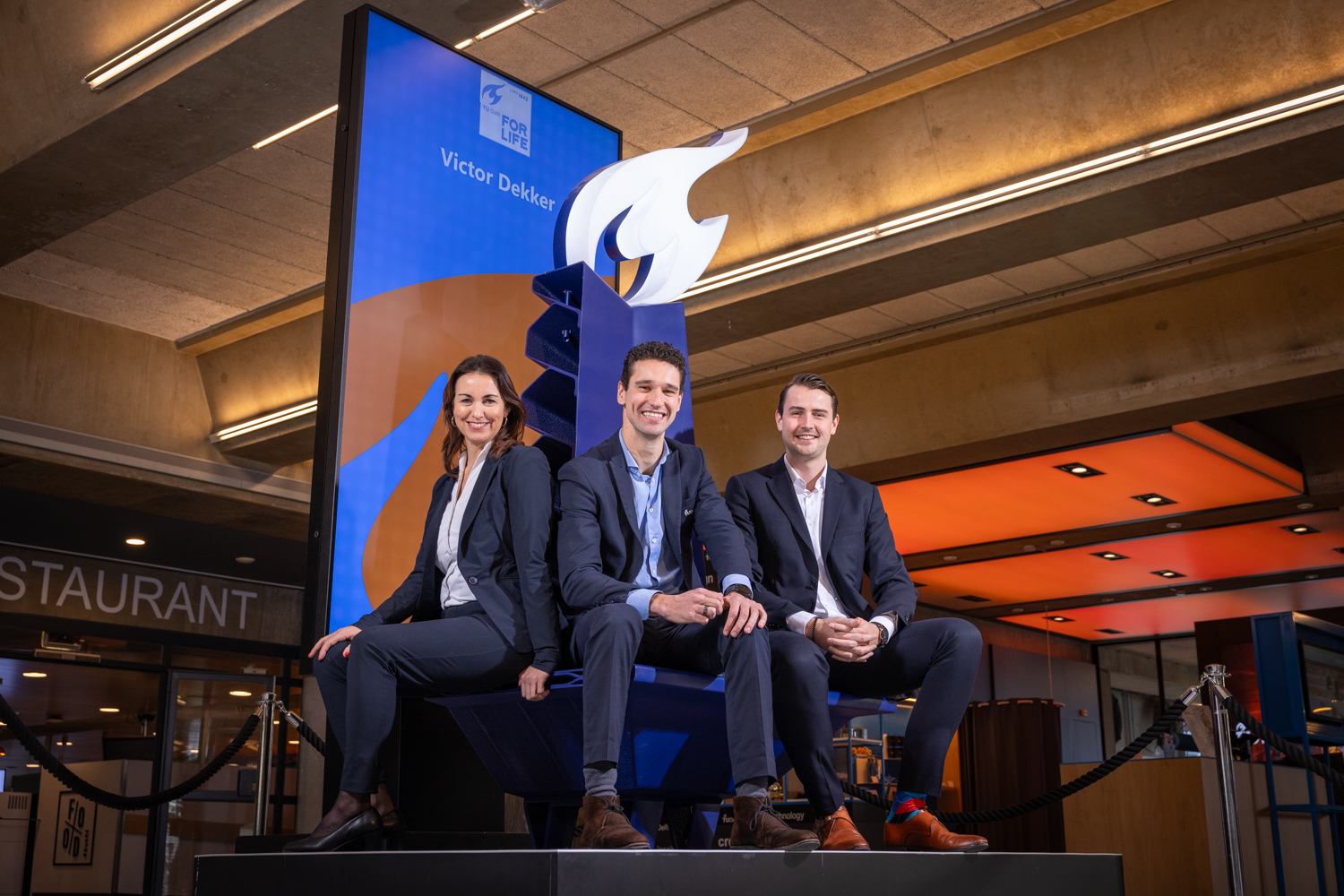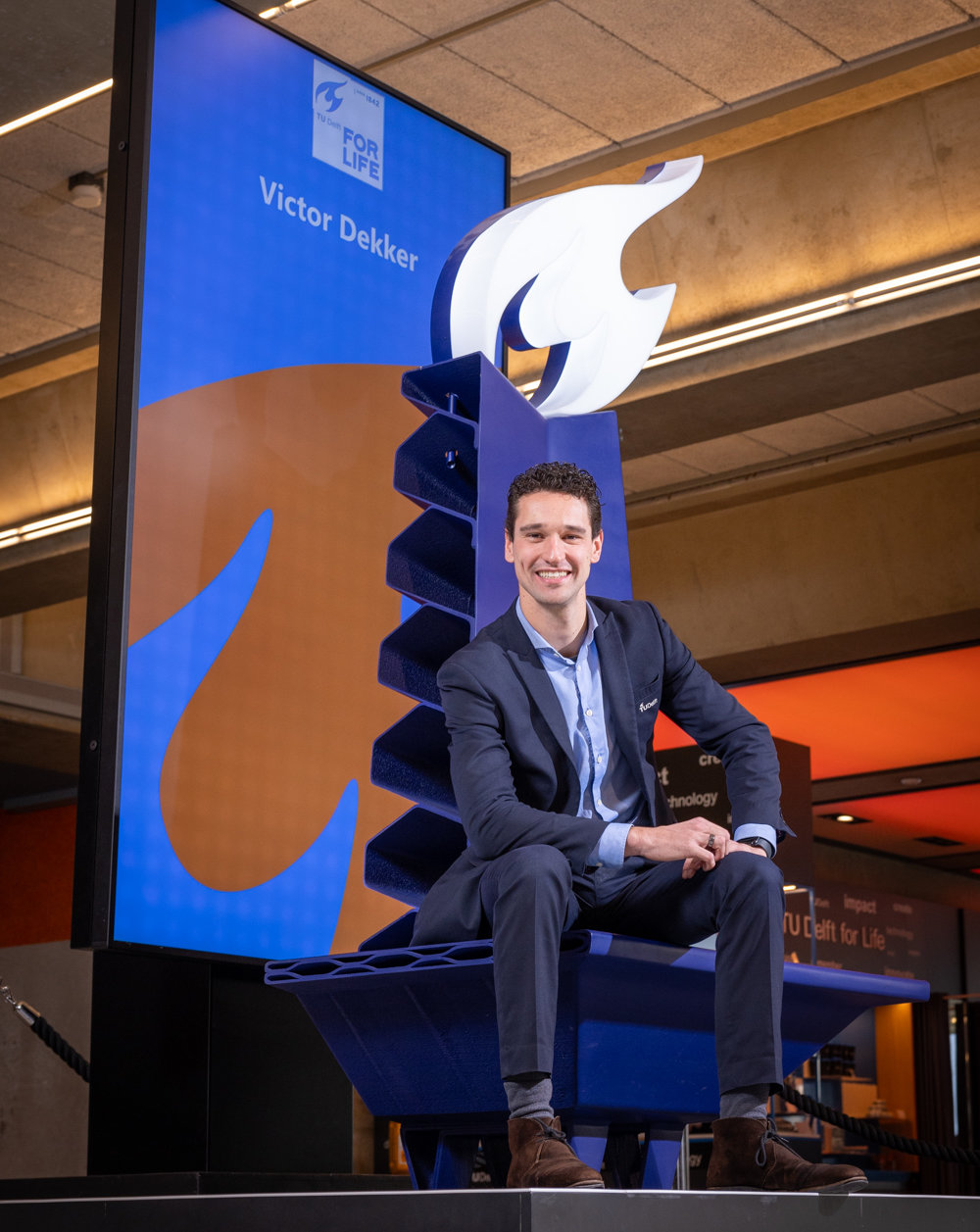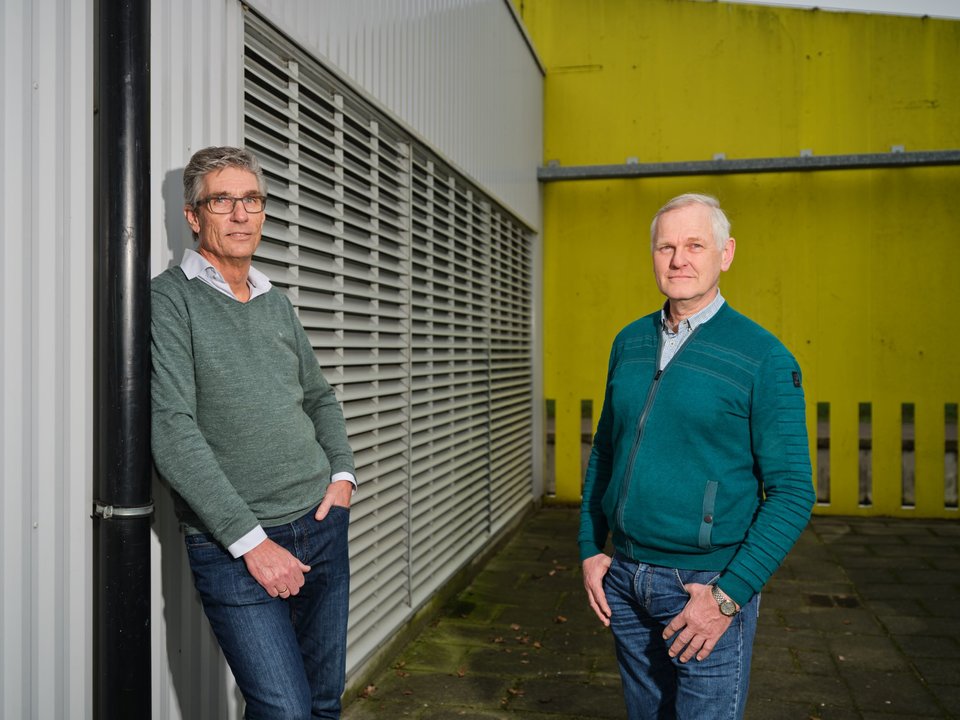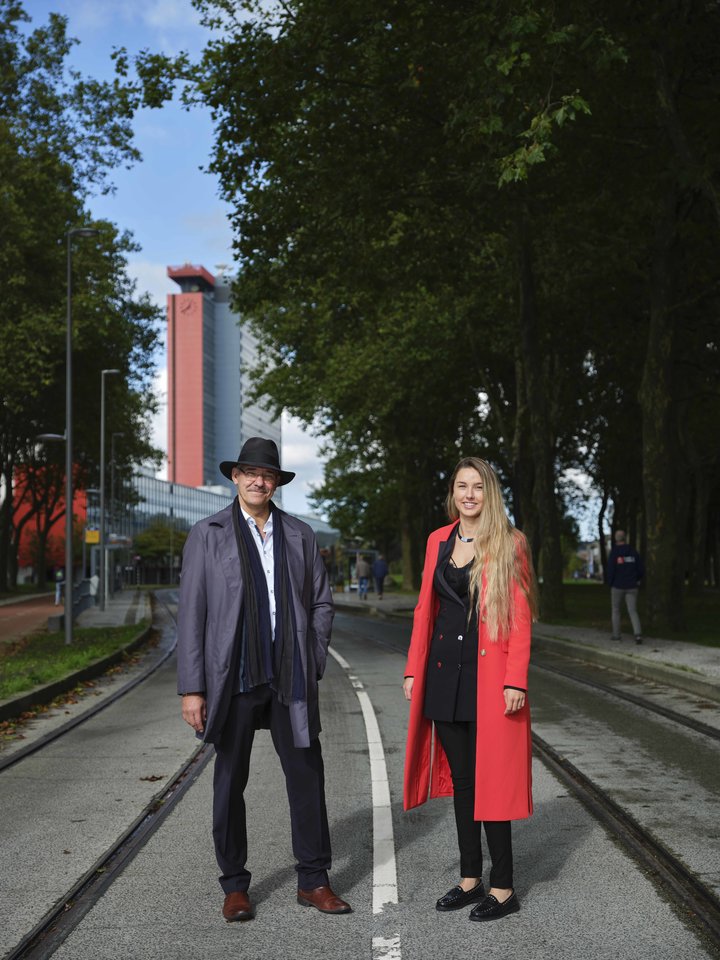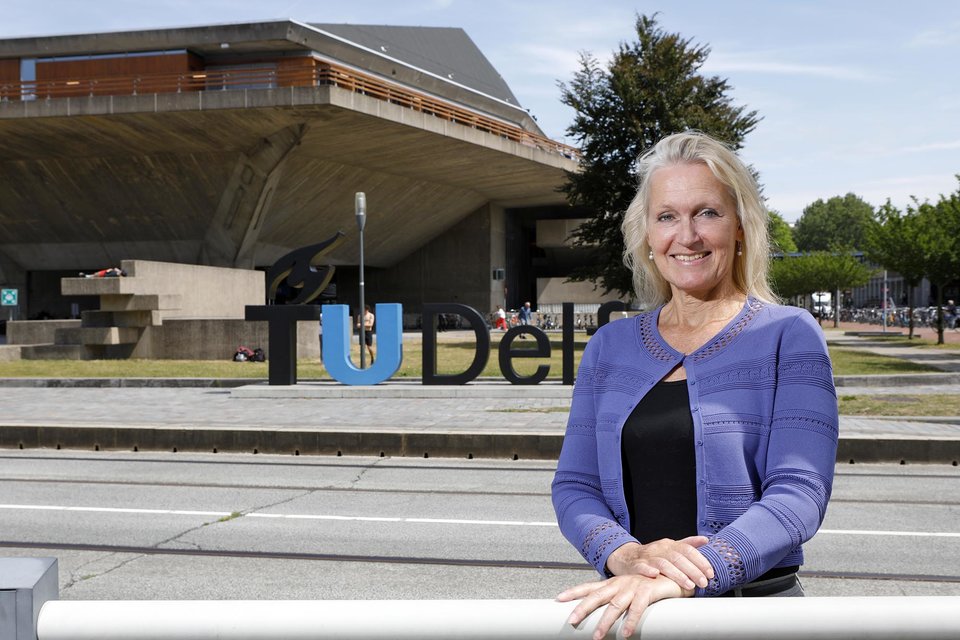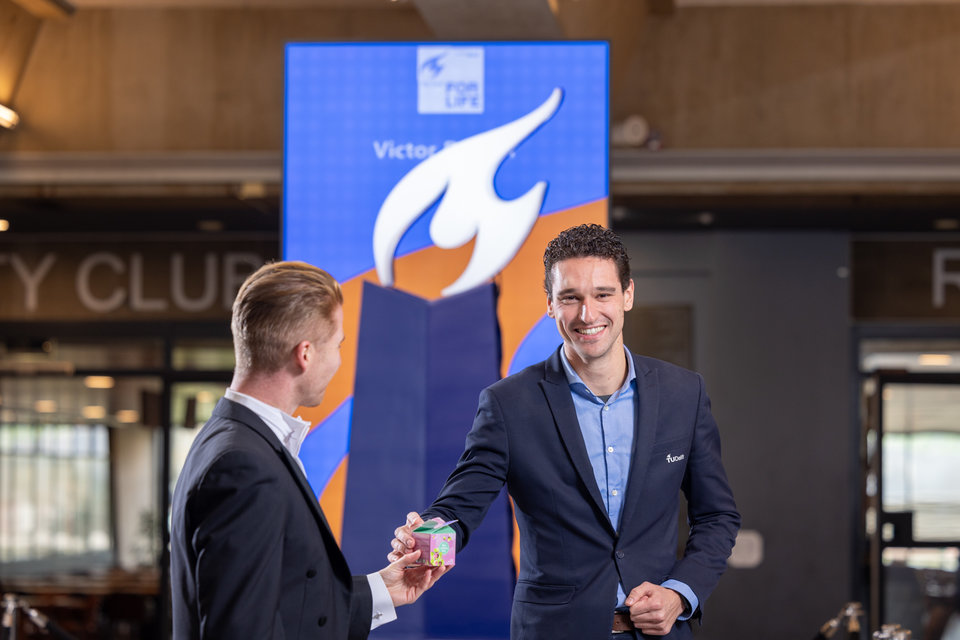Victor Dekker has been working in the TU Delft Aula for almost five years, and as a host for doctoral ceremonies, he fits in perfectly with the team. So say team leader Lennart van Popta and colleague and friend Anita Korteland. “Victor is just one of us,” says Anita. That's simple enough, but at the same time it's a bit special, because Victor is one of more than 100 colleagues who have started working at TU Delft under the Participation Act since 2015. A chat with Victor Dekker, Lennart van Popta and Anita Korteland.
There is always something going on in TU Delft’s Aula. Around 3,000 meetings take place every year in its more than 20 rooms, including the large auditorium with over a thousand seats. From major scientific conferences to lectures and business meetings. “Managing it all is a fantastic challenge. We have to make sure that staff, students and visitors can use all the facilities and that the events are of the highest possible quality,” says Lennart van Popta. He’s in charge of the 14 permanent and 13 on-call staff who work behind the scenes to make this happen.
Four-leaf clover
One of these permanent staff members is Victor Dekker. As a host, he is there to welcome people at an important and exciting moment in their careers: doctoral candidates preparing to defend their theses. He greets them, hands them a four-leaf clover to wish them success on behalf of the Aula team, and escorts them to the right room, where he hands them over to the beadle who makes sure the academic protocol is adhered to during the ceremony. Victor stays in touch with the technicians by walkie-talkie, and also receives the other guests. “It's a lot of fun, and I get to meet a lot of people from different countries”, he says.
With his big smile and outgoing manner, Victor is a natural at putting people at ease. But it hasn't always come naturally. “These people are here to do something you probably only do once in a lifetime. That's when you don't want to make mistakes, so I felt the pressure to get it right,” he says. When Victor is under pressure, he tends to stammer sometimes, although this happens less and less these days. “At first, I found it difficult to approach people. Not everyone takes the time to listen to you properly and sometimes they would just walk on. I found that difficult. But the longer I’ve been doing this job, the more skilful I’ve become.”
When he’s not working in the Aula, Victor can often be found at the gym. He lives on his own and has had a new girlfriend for a couple of months now. Life’s good, but he has had to overcome a lot to get this far. Victor became seriously ill as a baby and the heavy medication he was given, caused him to become developmentally delayed. Not one to sit still, however, Victor has worked as a kitchen helper and caretaker, among others. And after completion of a catering assistant course at Parc Spelderholt in 2018, he was able to get a job at TU Delft under the Dutch Participation Act.
The Act aims to get more people with an occupational impairment into work (see box below). For Victor, this means he gets extra support in the form of a buddy. The buddy is his colleague Anita Kortland. Anita has been working in the Aula for six years, mostly behind the counter in the shop with TU Delft merchandise. What does being a buddy involve? “Mainly listening and giving advice if there is anything,” Anita explains. Every Friday morning, Anita and Victor set aside a regular time to catch up with each other. “Our talks can be about work or colleagues, but also be about personal matters. Victor is very good at indicating when something's bothering him, so it goes quite naturally.”
Enthusiastic colleague
Lennart feels that Victor is an asset to the team. “He is a very nice and enthusiastic colleague,” he says. As a manager, he also believes it is important to be able to contribute to the participation programme. “Offering people a safe space to thrive gives them a positive role in society. This is also in line with our mission as a university: impact for a better society.”
Victor has certainly come a long way in recent years. Going up to people is no longer a problem. “The other day he went after someone who had not yet gone on the ‘throne’ for a photo after the ceremony,” says Anita. After taking a course, Victor now also addresses the many international guests in English. “It helps that I can often use the same phrases and words,” he says. All in all, he is having a great time at the Aula.:“My work is going very well and I really get on with my colleagues.” In this respect, he has also developed. “Of course you want to fit in,” he says, but things like conversations about politics or current affairs sometimes pass him by. “At first, I struggled with that, but now I am more accepting that it is the way it is.”
In addition to Victor in the front office, another colleague in technical support is employed under the participation act. As their manager, Lennart praises the support of the HR Participation team. “It's heart-warming to see how much attention is paid to this issue across the whole campus. In practical terms, such as contracts and secondments, everything is going well.” So is there any room for improvement? Anita: “As a buddy you do get a course, but it would be nice to stay in touch with other buddies afterwards, perhaps in a buddy network?” Victor himself, finally, is happy: “You never know what's going to happen from one day to the next, so I look forward to coming here every day. I feel right at home.”
Participation Act at TU Delft
The Participation Act came into force in 2015, and since then the participation team have been hard at work recruiting employees with occupational impairments, i.e. people with physical, mental or psychological impairments that make it difficult for them to find employment. As a public employer with more than 6,600 employees, it is very important that everyone feels welcome and safe at TU Delft, as is also the view of our Executive Board. Things are working out: over a hundred employees who are part of the scheme feel that way. Besides, as an organisation we need the workforce.
Would you like to join?
TU Delft has set itself a target of 275 jobs by 2025, but despite steady growth we are still a long way from achieving this. So why not consider a place in your department? There are no costs involved; the Participation Team takes care of recruitment and selection, and gives advice. The department provides support in the form of a buddy who is trained for this purpose. An external job coach also visits regularly to support the participation colleague.
Would you like to know more?
Visit https://intranet.tudelft.nl/-/participatiewet

